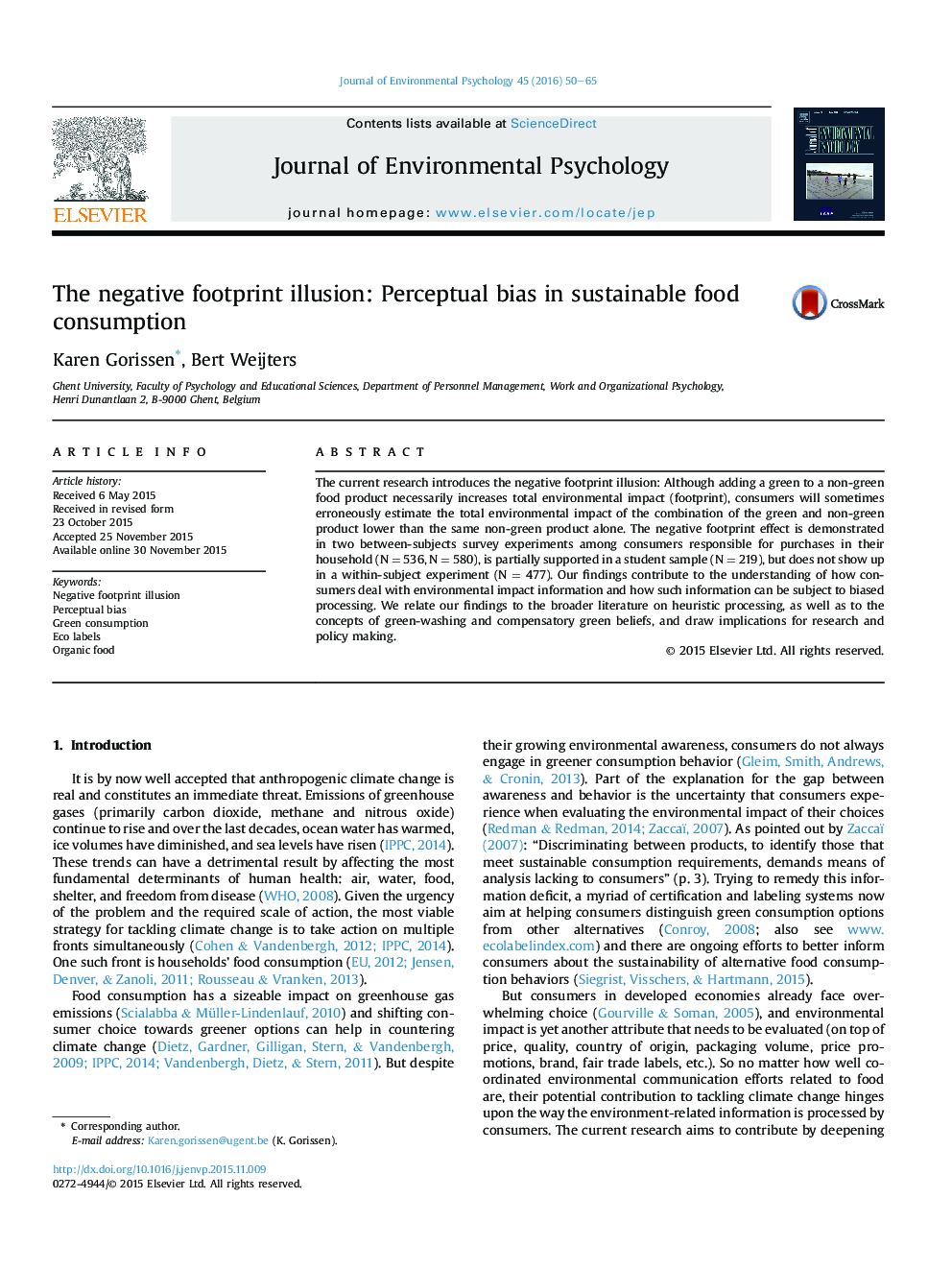| Article ID | Journal | Published Year | Pages | File Type |
|---|---|---|---|---|
| 7245595 | Journal of Environmental Psychology | 2016 | 16 Pages |
Abstract
The current research introduces the negative footprint illusion: Although adding a green to a non-green food product necessarily increases total environmental impact (footprint), consumers will sometimes erroneously estimate the total environmental impact of the combination of the green and non-green product lower than the same non-green product alone. The negative footprint effect is demonstrated in two between-subjects survey experiments among consumers responsible for purchases in their household (NÂ =Â 536, NÂ =Â 580), is partially supported in a student sample (NÂ =Â 219), but does not show up in a within-subject experiment (NÂ =Â 477). Our findings contribute to the understanding of how consumers deal with environmental impact information and how such information can be subject to biased processing. We relate our findings to the broader literature on heuristic processing, as well as to the concepts of green-washing and compensatory green beliefs, and draw implications for research and policy making.
Related Topics
Social Sciences and Humanities
Psychology
Applied Psychology
Authors
Karen Gorissen, Bert Weijters,
